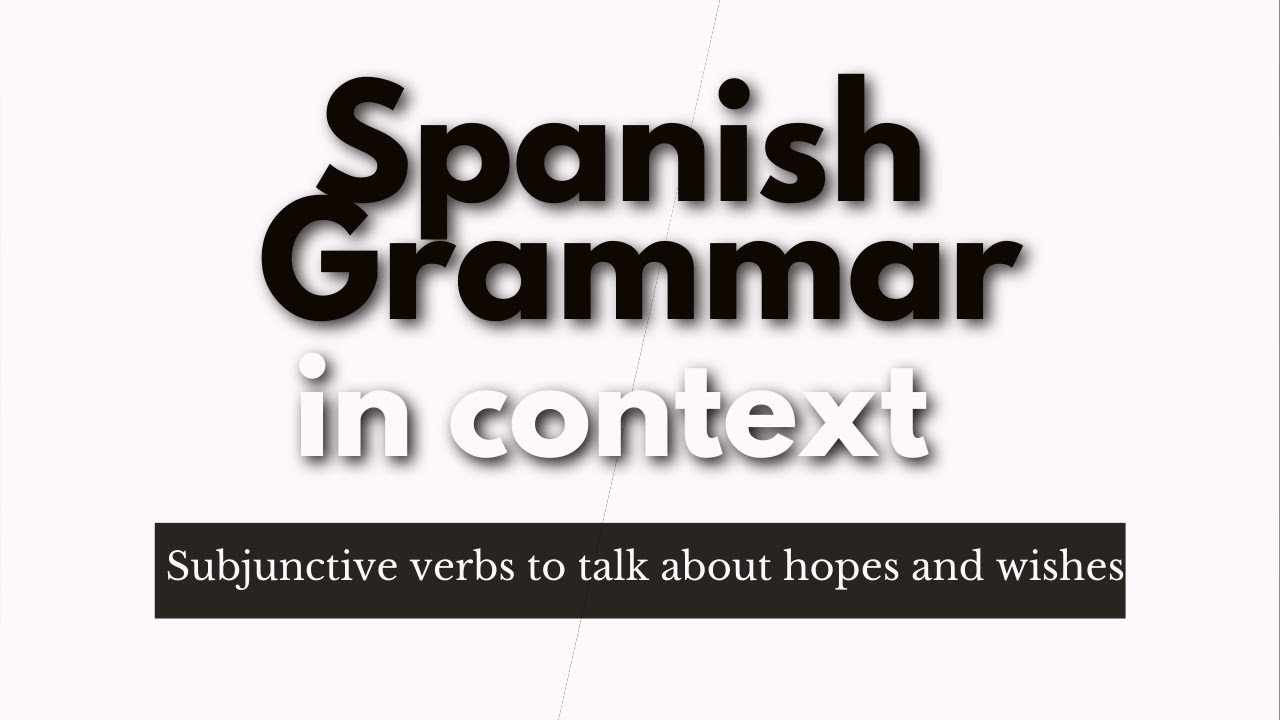Learn Spanish grammar in context. In this video, you’ll hear subjunctive verbs to talk about hopes and wishes.
Spanish Wishes and Hopes: Expressing Desires for the Future
In this video, I use the Spanish language to express a series of hopes and wishes for the year, touching on universal themes like peace, health, and happiness. This lesson is particularly useful for Spanish learners as it demonstrates how to articulate hopes and desires using specific grammatical structures in Spanish.
Key Takeaways
- Expressing Hopes in Spanish: The video shows how to use phrases like “espero que” (I hope that) and “ojalá que” (hopefully) to express hopes.
- Future Wishes Vocabulary: Introduction to vocabulary related to future aspirations and global issues.
- Cultural Sensitivity: The expressions reflect a global perspective, highlighting the importance of cultural sensitivity in language learning.
Step-by-Step Process
- Understanding Grammar: Focus on the structure and use of subjunctive mood in expressing hopes and wishes.
- Vocabulary Building: Pay attention to the specific vocabulary used to discuss topics like health, peace, and the environment.
- Practice Expression: Try formulating your own wishes for the future in Spanish using similar structures.
“Using Spanish to express our deepest hopes and wishes not only enhances our language skills but also connects us with wider global issues.”
Resources Mentioned
- Spanish Subjunctive Mood Guides: For mastering the grammatical structure used in expressing hopes and wishes.
- Vocabulary Lists on Global Issues: To expand understanding of relevant terms and expressions.
Personal Best Advice
As a language enthusiast, I encourage learners to use language as a tool to express their thoughts on broader issues. Practicing such expressions not only improves your Spanish but also helps you engage more deeply with global topics, fostering both linguistic and cultural awareness.
FAQ
- How important is the subjunctive mood in Spanish?
It’s crucial for expressing wishes, emotions, doubts, and hypothetical situations. Can beginners learn to use these expressions?
Yes, with practice, even beginners can start using these expressions effectively.Why is it important to talk about global issues in language learning?
It broadens the scope of learning, making it more relevant and meaningful.How can I improve my Spanish vocabulary on global topics?
Regular reading and listening to Spanish media on global issues can be very helpful.Is cultural sensitivity important in language learning?
Absolutely, understanding cultural nuances is key to effective communication.
Meta Description
Learn to express hopes and wishes in Spanish with [Creator’s Name]. This episode delves into the use of the subjunctive mood to discuss global issues and personal aspirations, enriching your language skills with culturally sensitive and relevant expressions.
Want to master Spanish? Do it in the Lab.
https://real-life-language.teachable.com/p/speak-spanish-like-a-native
Do you teach Spanish? Save yourself a ton of time and money with my creations over decades of summers.
https://real-life-language.teachable.com/p/immersive-beginning-spanish-lessons
If you teach languages, you probably love languages, too. However, our students don’t always love it so much. With all of the hard parts, who can blame them? In this free guide, I share 25 activities that can be used to teach any language and can be adapted to any level. Get yours here https://real-life-language.ck.page/200491762e
Here’s a whole playlist of conversations for beginners: https://www.youtube.com/playlist?list=PL0Lh3RG706EXXYP9OGk8Wnns7955Nii39
